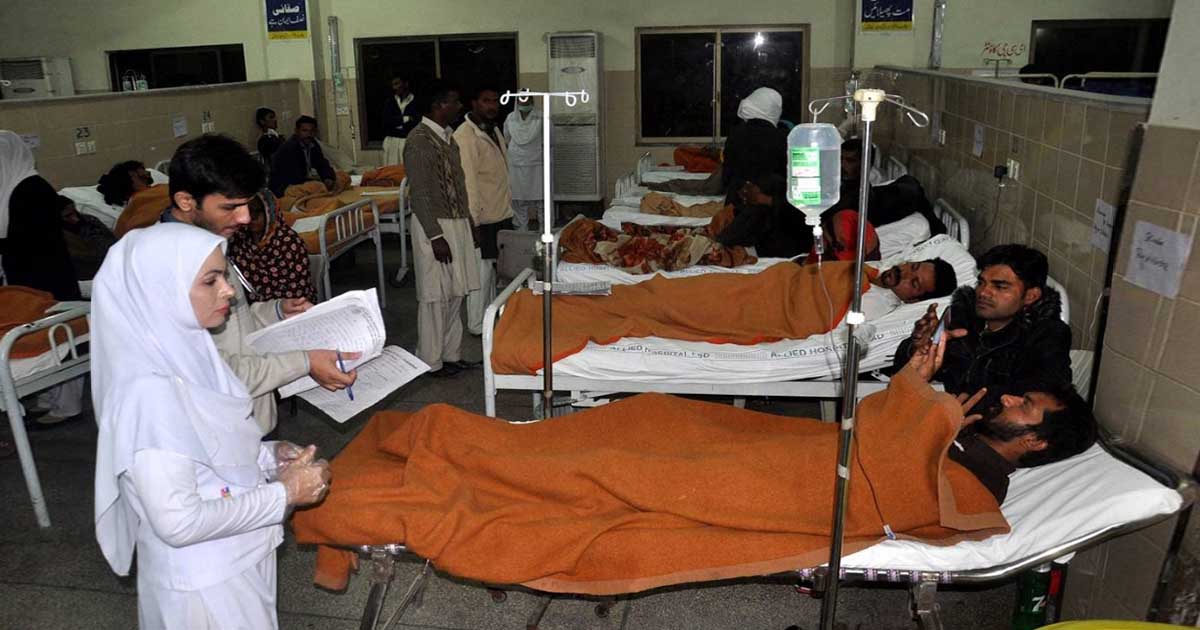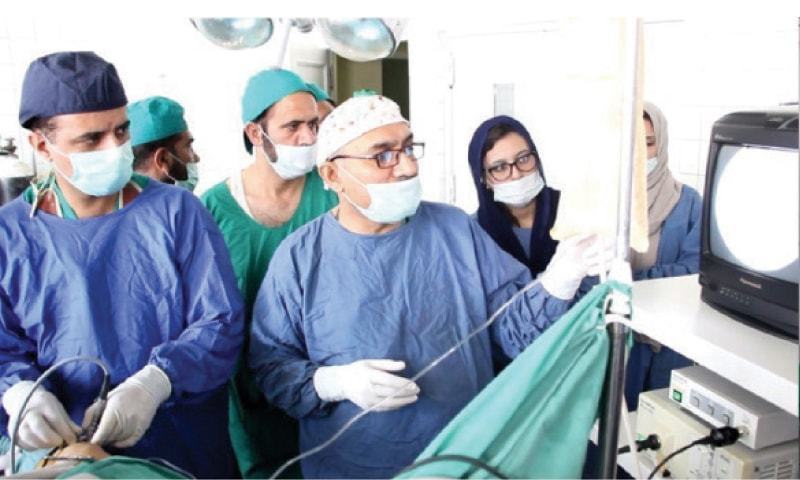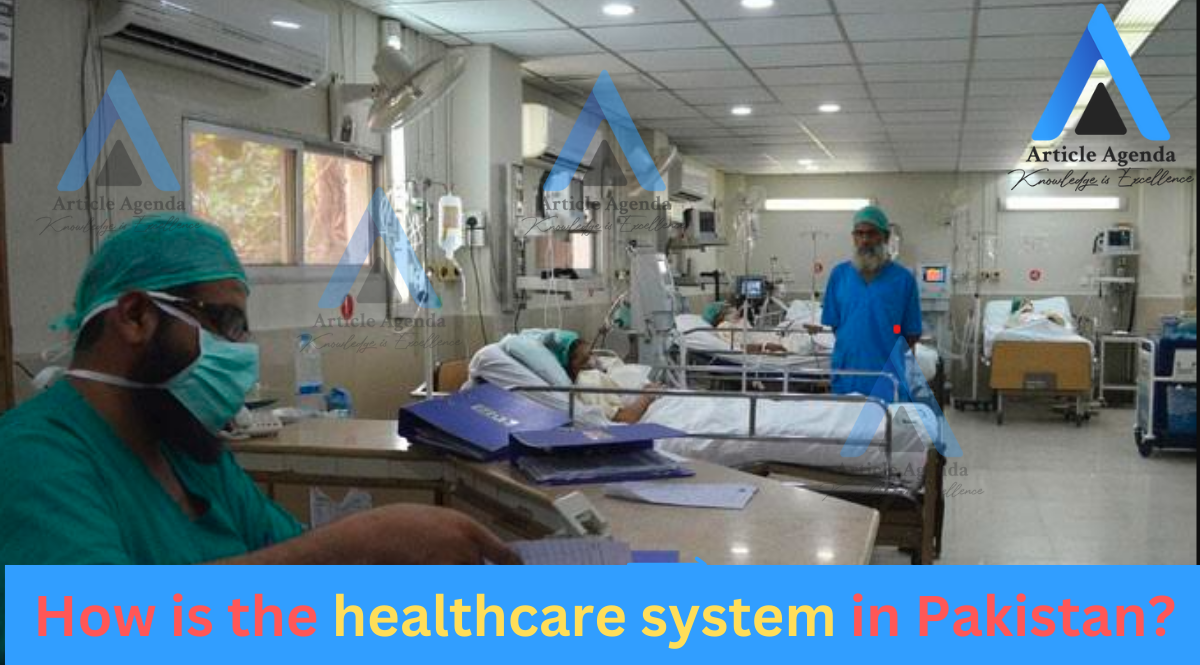Introduction to the healthcare system in Pakistan
The healthcare system in Pakistan plays a vital role in providing medical services to its citizens. It is a complex network of public and private healthcare facilities that aim to meet the population’s healthcare needs. However, the system faces numerous challenges and issues that hinder its effectiveness and accessibility. In this article, we will explore the overview of the healthcare facilities and infrastructure in Pakistan, the challenges faced by the healthcare system, the government’s initiatives and policies to improve healthcare, healthcare services in rural areas, the private healthcare sector, the role of healthcare professionals, healthcare expenditure and financing, and finally, a comparison of the healthcare system in Pakistan with other countries.
Table of Contents
- Introduction to the healthcare system in Pakistan
- Overview of healthcare facilities and infrastructure in Pakistan
- Challenges and issues faced by the health care system in Pakistan
- Government initiatives and policies to improve healthcare in Pakistan
- Healthcare services and accessibility in rural areas of Pakistan
- Private healthcare sector in Pakistan
- Role of healthcare professionals in Pakistan
- Healthcare expenditure and financing in Pakistan
- Comparison of the health care system in Pakistan with other countries
- Conclusion and prospects of the health care system in Pakistan
Overview of healthcare facilities and infrastructure in Pakistan
Pakistan has diverse healthcare facilities and infrastructure, from primary healthcare centers to tertiary care hospitals. The country has a mix of public and private healthcare providers, with the public sector being the primary provider of healthcare services. Public hospitals and clinics are funded and managed by the government, while private hospitals are owned and operated by individuals or organizations.
A significant disparity between urban and rural areas characterizes the healthcare infrastructure in Pakistan. Urban areas have relatively better healthcare facilities, including well-equipped hospitals and specialized medical centers. However, rural areas need more healthcare infrastructure, with limited access to essential healthcare services. This disparity in healthcare facilities contributes to the existing healthcare challenges in the country.

Challenges and issues faced by the health care system in Pakistan
The health care system in Pakistan faces several challenges and issues that hinder its effectiveness. One of the primary challenges is the need for more healthcare infrastructure, especially in rural areas. This results in a lack of accessibility to healthcare services for a significant portion of the population. Additionally, there is a need for more healthcare professionals, including doctors, nurses, and paramedical staff. This shortage further exacerbates the healthcare crisis in the country.
Another significant issue is the high out-of-pocket expenditure on healthcare. Many people in Pakistan have to bear the entire cost of medical treatment themselves, leading to financial hardships and limited access to quality healthcare services. Furthermore, there is a lack of healthcare financing mechanisms and health insurance coverage, which leaves a vast portion of the population vulnerable to medical emergencies and unexpected healthcare expenses.
Read More : What Is The Difference Between Hospital And Healthcare?
Government initiatives and policies to improve healthcare in Pakistan
The government of Pakistan has recognized the need to improve the health care system and has implemented various initiatives and policies to address the existing challenges. One such initiative is the National Health Vision 2025, which aims to provide universal health coverage and improve the country’s healthcare infrastructure. The government has also launched programs to increase the number of healthcare professionals and enhance their skills through training and capacity-building initiatives.
In addition, the government has introduced health insurance schemes to provide financial protection and improve access to healthcare services. The Prime Minister’s Health Program aims to provide health insurance coverage to vulnerable populations, including low-income families and senior citizens. These initiatives are steps in the right direction towards improving the health care system in Pakistan.
Healthcare services and accessibility in rural areas of Pakistan
Pakistan’s Rural areas face significant challenges regarding healthcare services and accessibility. The need for healthcare infrastructure and a shortage of healthcare professionals contribute to the limited availability of healthcare services in these areas. People living in rural areas often travel long distances to access even basic healthcare facilities, which can be time-consuming and costly.
To address this issue, the government has initiated programs such as the Rural Health Program, which aims to improve healthcare services in rural areas. The program focuses on establishing basic healthcare units and rural health centers to provide primary healthcare services to the rural population. Mobile health units have also been introduced to reach remote areas and provide medical services to underserved communities. These efforts are essential in bridging the healthcare gap between urban and rural areas in Pakistan.

Private healthcare sector in Pakistan
The private healthcare sector in Pakistan plays a significant role in supplementing the public health care system. Private hospitals and clinics offer various healthcare services, including specialized treatments and diagnostics. The private sector is known for its state-of-the-art facilities, advanced medical technologies, and specialist doctors. However, personal healthcare services are often expensive and not easily accessible to everyone, especially those in low-income groups.
The government regulates the private healthcare sector in Pakistan to ensure quality and patient safety. The Pakistan Medical and Dental Council (PMDC) oversees the registration and accreditation of healthcare professionals. At the same time, the Drug Regulatory Authority of Pakistan (DRAP) monitors the quality and availability of pharmaceutical products. The government has also introduced regulatory frameworks to control the pricing of healthcare services provided by the private sector.
Role of healthcare professionals in Pakistan
Healthcare professionals in Pakistan, including doctors, nurses, and paramedical staff, play a crucial role in delivering healthcare services. They are responsible for diagnosing and treating patients, providing preventive care, and managing medical emergencies. The shortage of healthcare professionals in the country poses a significant challenge to the health care system.
To address this shortage, the government has increased the number of healthcare professionals by establishing new medical colleges and nursing schools. Additionally, efforts are being made to improve the working conditions and incentives for healthcare professionals to retain them within the country. The role of healthcare professionals in Pakistan is pivotal in ensuring the efficient functioning of the health care system and delivering quality healthcare services to the population.
Healthcare expenditure and financing in Pakistan
Healthcare expenditure and financing in Pakistan are significant concerns that impact the accessibility and affordability of healthcare services. The country’s healthcare expenditure is primarily financed through out-of-pocket payments, which burdens individuals and families significantly. This high out-of-pocket expenditure contributes to many financial hardships in accessing quality healthcare services.
The government has introduced health financing mechanisms such as the Health Care Delivery System Reforms Program and the Health Sector Development Program to address this issue. These programs aim to increase public spending on healthcare, improve healthcare financing mechanisms, and enhance the accessibility and affordability of healthcare services for all population segments.
Read More : 06 Major health tech trends in 2024
Comparison of the health care system in Pakistan with other countries
Pakistan’s healthcare system faces unique challenges and issues compared to other countries. The country’s relatively low healthcare budget allocation limits its capacity to provide adequate healthcare services to the population. The shortage of healthcare professionals and inadequate healthcare infrastructure further contribute to the challenges faced by the system.
In contrast, countries with well-developed healthcare systems, such as Canada and the United Kingdom, have implemented universal healthcare coverage and have better healthcare infrastructure and resources. These countries prioritize healthcare as a fundamental right and allocate a significant portion of their budget to the healthcare sector. However, it is essential to note that each healthcare system has its strengths and weaknesses, and the comparison should be made considering each country’s unique context.
Conclusion and prospects of the health care system in Pakistan
In conclusion, the healthcare system in Pakistan faces numerous challenges and issues that hinder its effectiveness and accessibility. However, the government’s initiatives and policies, along with the efforts of healthcare professionals, are steps in the right direction towards improving the system. The healthcare sector in Pakistan needs continued investment, infrastructure development, and capacity-building programs to meet the healthcare needs of its growing population.
The prospects of the healthcare system in Pakistan depend on sustained efforts to address the existing challenges and improve healthcare services. It is crucial to prioritize healthcare financing, increase the number of healthcare professionals, bridge the healthcare gap between urban and rural areas, and enhance the accessibility and affordability of healthcare services. By working towards these goals, Pakistan can strive towards a more efficient and inclusive healthcare system that meets the needs of its citizens.
Latest Post
-
Smart Home Appliances in the UAE: Revolutionizing Modern Living
The UAE has long been recognized as a hub for innovation and technological advancement, and the adoption of smart home appliances is no exception. As the nation embraces the concept of smart homes, residents are experiencing a transformation in their daily lives, characterized by increased convenience, efficiency, and sustainability. This article explores how smart home…
-
(Artificial Intelligence) AI and ML (Machine Learning) : Transforming the Future
Artificial Intelligence (AI) and Machine Learning (ML) are two of the most transformative technologies of our time. They are reshaping industries, driving innovation, and opening up new possibilities in ways previously unimaginable. This article explores the fundamentals of AI and ML, their applications, and their profound impact on various sectors. Understanding Artificial Intelligence (AI) What…
-
Digital Marketing Services: Transforming Your Business in the Digital Age
In today’s digital-first world, businesses must leverage digital marketing services to remain competitive, attract customers, and drive growth. Digital marketing encompasses a broad range of tactics and strategies aimed at promoting products or services through digital channels. This article delves into the various types of digital marketing services available, their benefits, and how businesses can…




